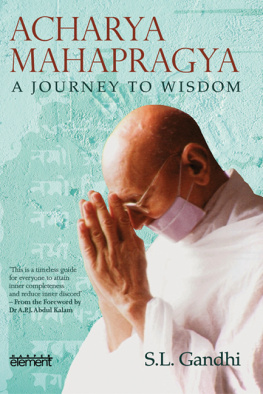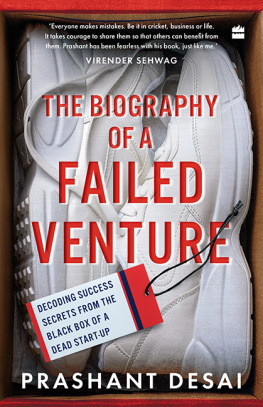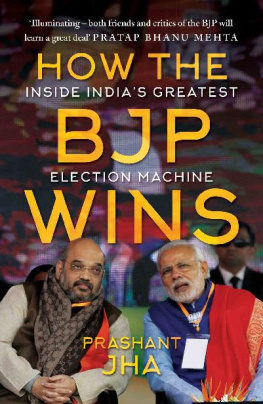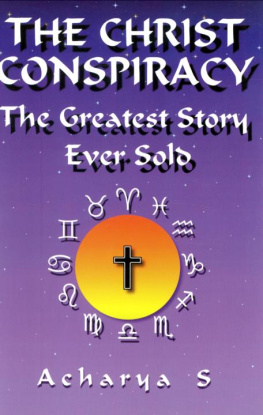Acharya Prashant - Karma
Here you can read online Acharya Prashant - Karma full text of the book (entire story) in english for free. Download pdf and epub, get meaning, cover and reviews about this ebook. year: 2021, publisher: Penguin Group, genre: Religion. Description of the work, (preface) as well as reviews are available. Best literature library LitArk.com created for fans of good reading and offers a wide selection of genres:
Romance novel
Science fiction
Adventure
Detective
Science
History
Home and family
Prose
Art
Politics
Computer
Non-fiction
Religion
Business
Children
Humor
Choose a favorite category and find really read worthwhile books. Enjoy immersion in the world of imagination, feel the emotions of the characters or learn something new for yourself, make an fascinating discovery.

- Book:Karma
- Author:
- Publisher:Penguin Group
- Genre:
- Year:2021
- Rating:5 / 5
- Favourites:Add to favourites
- Your mark:
- 100
- 1
- 2
- 3
- 4
- 5
Karma: summary, description and annotation
We offer to read an annotation, description, summary or preface (depends on what the author of the book "Karma" wrote himself). If you haven't found the necessary information about the book — write in the comments, we will try to find it.
Acharya Prashant: author's other books
Who wrote Karma? Find out the surname, the name of the author of the book and a list of all author's works by series.
Karma — read online for free the complete book (whole text) full work
Below is the text of the book, divided by pages. System saving the place of the last page read, allows you to conveniently read the book "Karma" online for free, without having to search again every time where you left off. Put a bookmark, and you can go to the page where you finished reading at any time.
Font size:
Interval:
Bookmark:



PENGUIN BOOKS

PENGUIN BOOKS
This book was spoken first and written later.
As a Vedanta philosopher and teacher, Acharya Prashant has been interacting with diverse audiences for over a decade. Though the questioners come from varying backgrounds, each of these interactions is usually in the form of a question that the teacher responds to. The length of each such interaction varies from ten minutes to as much as an hour. Every chapter of this book is essentially based on one such interaction. This means that each chapter, though coming from a single centre, exhibits the response of the speaker to very different people and their life-queries. The questioners are spaced apart across years, continents, genders, and everything else that makes a human being diverse from the other. This means that the readers get an enriching kaleidoscopic perspective as they go through the range of human conditions, confusions and questions all related to the question of ones identity, which, as we shall learn in the book, is central to the question of the how to take the right action.
Karma is a word as common in the spiritual lexicon as in the popular parlance. However, its real meaning and implications stand obfuscated and distorted by centuries of misplaced expositions and self-appeasing translations. While commoners console themselves with the pedestrian notions attached to this word, it remains a disquieting enigma to those who refuse to resort to easy versions of the truth. This book is for the latter.
Moment by moment, life is synonymous with action. If to live rightly is to act rightly, then what is the right action? This has tormented human consciousness since ages.
The scriptures have tried to classically answer this question, but scriptures are infamous for being cryptic. They do not stoop to edify us with elaborations and examples, nor do they exactly advise how their ancient words apply to the current times. It is at this point that Acharya Prashants exegesis and elucidations provide the missing link. In the ever-growing jungle of neo-spiritual illusions, the author provides clear-sighted guidance, addressing the most essential aspect of our life from a point of unified understanding and realization. The consequent decision-making leads directly to earnest and fearless action.
The book proceeds by demolishing the most prevalent myths regarding action, decision, and work by bringing the focus on the actor, rather than the action. From the darkness of confusion when we want to ask, What to do? the book handholds us into the light of the question, Who is the doer? What does he want from the deed? This transformation of investigation provides all the solutions, and finally the dissolution of the question itself.
The centuries-old widely prevalent myths related to Karma are peddled by ignorance or self-interest, or both. This book bombards the high palaces of dark and ubiquitous authority, and when they come crashing down, we discover they never had any scriptural foundations at all.
This is a work to be met not with the armours of our deep beliefs, but bare-chested, like a lover. If you are someone with the courage to challenge the tyrannies of tradition, authority and obscurantism, and the love to greet the naked truth, this book is for you, and only for you.
A word of caution: Because of the vast differences among seekers and their queries, the responses of the teacher too are customized and not standardized. At some places, therefore, the responses in one chapter may appear to be apparently contradictory to the responses in another chapter. We hope that our discrete readers will be able to appreciate the differences as the various roads leading to the same core.
The Vedas are the oldest religious documents known to man. And Vedanta is the crown jewel, the absolute peak, of the Vedic essence.
The world today finds itself grappling with problems unseen in history. The problems of the past were mostly related to poverty, disease, hunger, illiteracy, lack of knowledge, and lack of technology. In short, the challenge was external, the enemywhether in the form of a microbe or lack of resourceswas outside. It was about man struggling against the tyranny of his external circumstances.
The last hundred years have been, however, different. And the current century has raised the spectre of mans conflicts to a very different and difficult theatre. The secrets of the atom and the universe have more or less yielded to mans relentless investigation. Poverty, illiteracy and disease are no more the invincible monsters they used to be. Today, matter is at mans beck and call, and there is ambition to colonise the universe, and even beat death.
It should then sound like the best of times. The current period should be the best one in the history of our species. Far from that, we find ourselves staring at, as we said, a very different dimension of challenge in the inner theatre. Having conquered almost everything in the external world, man finds he is today a bigger slave to himself than he ever was. And its an ignominious slaveryto rule all, only to find that inwardly one is a huge slave of an unknown oppressor.
Man has immense power over his environment today, but man is himself controlled by his inner destructive centre he has very little knowledge about. Together, these two mean that mans tendency and ability to wreak havoc over his ecosystem is unlimited and unquestioned. Man has only one inner rulerdesire, the ever-sprawling desire to consume and experience more and more happiness. Happiness, that is experienced only to find that it evades all experience.
In this context, Vedantaas the pure essence of spiritualitybecomes more important today than it probably ever was. Vedanta asks the questionsWho is the inner one? What is his nature? What does he desire? Will fulfilment of his desires give him contentment?
As a response to the situations mankind today finds itself in, Acharya Prashant has taken upon the solemn project of bringing the essence of Vedanta to todays world. His calling is to bring the pure essence of Vedantic spirituality to all, and apply it to solve todays problems. The problems of today are borne out of mans ignorance towards himself, and therefore they can be solved only by sincere self-knowledge.
Acharya Prashant has approached the matter of bringing Vedanta to the public in a two-pronged way. One, he has spoken upon scores of Upanishads and the Gita and his comprehensive commentaries are available in the form of video courses and books (at solutions.acharyaprashant.org). Two, he addresses the daily mundane problems of people and demonstrates how to solve them in the light of Vedanta. His social media is dedicated to hosting tens of thousands of such open QnA sessions.
Prashant Tripathi was born in 1978, in Agra, India. Eldest of three siblings, his father was a bureaucrat and mother a homemaker. His childhood was spent mostly in the state of Uttar Pradesh.
Parents and teachers found in him a child who could often be quite mischievous, and then suddenly, deeply contemplative. Friends too recall him as having an unfathomable temperament, often not really sure whether he was joking or serious. A brilliant student, he consistently topped his class and received the highest commendations and prizes possible to a student. His mother fondly remembers how she was honoured several times as Mother Queen for the academic performance of her child. Teachers would say that never before had they seen a student who was as brilliant in Science as in Humanities, as adept in Mathematics as in Languages, and as proficient in English as in Hindi. The then Governor of the state felicitated him in a public function for setting a new benchmark in the Board examinations, and for being an NTSE scholar.
Font size:
Interval:
Bookmark:
Similar books «Karma»
Look at similar books to Karma. We have selected literature similar in name and meaning in the hope of providing readers with more options to find new, interesting, not yet read works.
Discussion, reviews of the book Karma and just readers' own opinions. Leave your comments, write what you think about the work, its meaning or the main characters. Specify what exactly you liked and what you didn't like, and why you think so.







